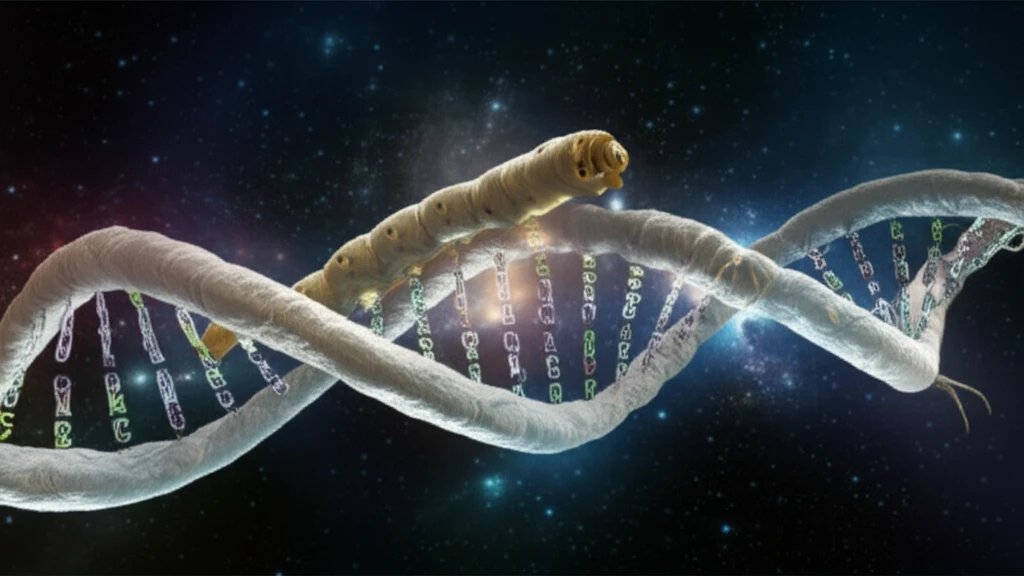
Decoding Your Genes: What Silkworm DNA Reveals About Health and Evolution
"Unlocking the secrets of Bombyx mori's ABC gene family could revolutionize personalized medicine and our understanding of genetic adaptation."
Imagine a world where your genetic code is as easy to read as a book, providing insights into everything from your predisposition to certain diseases to how your body processes medications. While that future isn't quite here yet, scientists are making incredible strides in understanding the complex language of DNA. One fascinating area of research involves studying the genes of other organisms, like the silkworm, to uncover fundamental principles that apply across species.
A recent study focused on the silkworm (Bombyx mori) and its ABC (ATP-binding cassette) gene family. These genes are crucial for transporting various molecules across cell membranes, playing a vital role in everything from nutrient absorption to drug detoxification. By analyzing the silkworm's ABC genes, researchers hoped to gain insights into how genes evolve, adapt, and influence an organism's characteristics.
This article will break down the key findings of the silkworm gene study, explaining the science in an accessible way and exploring the potential implications for human health and our broader understanding of genetics. Whether you're a science enthusiast or just curious about the building blocks of life, get ready to unravel the secrets hidden within the silkworm's DNA.
What are ABC Transporter Genes and Why Do They Matter?

Before diving into the silkworm study, it's important to understand what ABC transporter genes are and why they're so significant. Think of them as tiny gatekeepers within your cells, controlling the movement of molecules in and out. These genes code for proteins that use energy (ATP) to transport a wide variety of substances, including ions, sugars, amino acids, and even drugs. Their versatility makes them essential for numerous biological processes.
- Drug Resistance: ABC transporters can pump drugs out of cells, making them ineffective. This is a major problem in cancer treatment, where tumors can develop resistance to chemotherapy drugs.
- Detoxification: They help remove toxins and harmful substances from the body, protecting cells from damage.
- Nutrient Transport: They facilitate the absorption of essential nutrients from the diet.
- Cell Signaling: They play a role in communication between cells.
- Protection Against Viruses: Certain ABC subfamilies may correlate with anti-virus abilities.
The Future of Gene Research: What's Next?
The silkworm ABC gene study is just one piece of the puzzle in our quest to understand the complexities of genetics. As technology advances, researchers will be able to analyze genomes more quickly and accurately, leading to even greater insights into the relationship between genes, environment, and health. This knowledge could pave the way for personalized medicine, where treatments are tailored to an individual's unique genetic makeup. By continuing to explore the genetic diversity of life on Earth, we can unlock the secrets to better health and a deeper understanding of ourselves.
